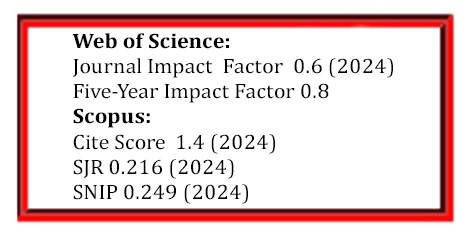Effect of Magnesia Addition on the Densification and Mechanical Properties of Zinc Aluminate Ceramic
DOI:
https://doi.org/10.5755/j02.ms.39605Keywords:
zinc aluminate ceramic, mechanical property, densification, magnesiaAbstract
Zinc aluminate (ZnAl2O4) ceramic has attracted more and more attention because of its superior properties. ZnAl2O4 ceramic was successfully synthesized via solid-state reaction sintering using alumina and zinc oxide as raw materials and magnesia as an additive. The phase composition and microstructure of sintered samples were characterized by XRD and SEM. The densification of ZnAl2O4 ceramic containing 2.5 % magnesia is significantly improved, 6.01 % of apparent porosity and 4.1 g/cm3 of bulk density. Additionally, the flexural strength achieves the maximum of 198.7 MPa, which is 91.2 % higher than that without magnesia addition. During sintering, Mg2+ can substitute Zn2+ to form (MgxZn1-x)Al2O4 spinel, promoting the development and growth of ZnAl2O4 grains and making the structure denser. The free Zn2+ can inhibit grain boundary migration and locally refine grains, resulting in an increase of the strength.
Downloads
Published
Issue
Section
License
The copyrights for articles in this journal are retained by the author(s), with first publication rights granted to the journal. By virtue of their appearance in this open-access journal, articles are free to use with proper attribution in educational and other non-commercial settings.



